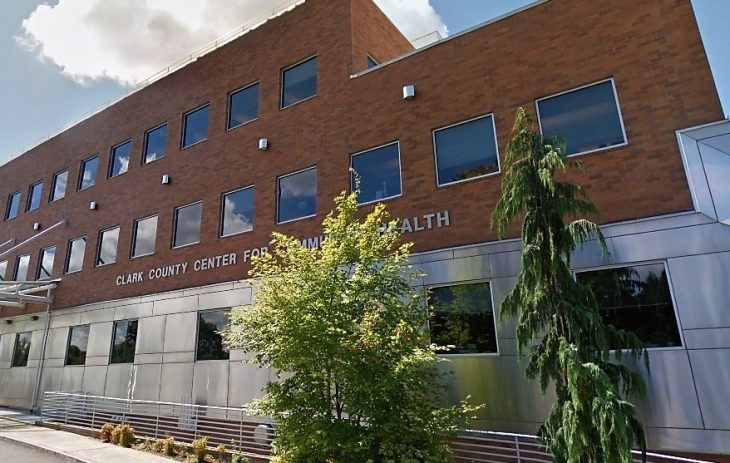About Lifeline Connections Vancouver
Lifeline Connections in Vancouver, Washington, provides substance use and mental health treatments in person or online. They offer medical detox, medication-assisted recovery (MAR) and assessments, case management, and more. Lifeline employs staff who are fluent in American Sign Language.
They accept most insurance plans and will provide you simplified information about your plan’s coverage. You should know, though, that Lifeline Connections doesn’t treat pregnant women or those who need a benzodiazepine taper.
Their inpatient detox services are often the first step in helping clients begin their recovery journey. You’ll stay in one of 16 beds while you go through the withdrawal process. You’ll be closely monitored to make sure you are safe and as comfortable as possible. Medications may be prescribed to minimize withdrawal symptoms. While each person varies, most stay in detox for 3 to 5 days.
If you don’t require detox, you may choose to begin treatment with MAR. Or, this can be a step down level of treatment after detox. MAR uses approved medications to treat opioid cravings and block its effects. Common medications include methadone, naltrexone, Suboxone and buprenorphine. Your provider will go through the different options to guide you to choose what is best for your needs.
Lifeline Connections offers substance use disorder assessments for several hours most business days. They also run a MAR rapid response service to get help to people in urgent need. You can walk in during rapid response times to get immediate treatment. While their hours for this service are limited, I think it’s a great service to offer.
Lifeline also offers peer support and other community-based resources. If you’re leaving incarceration and getting back to your neighborhood, they can provide assistance for any behavioral disorders to ease the transition.
Levels of Care
-
Inpatient
Inpatient and residential programs provide round-the-clock medical and emotional support as you live at the treatment facility. This level of care may be recommended if you have severe addictions or mental health conditions since it removes outside distractions and allows you to focus solely on therapy.
-
Outpatient
In outpatient therapy, you’ll attend therapy sessions several times each week while living at home. This is ideal if you have a strong support system and a lower risk of relapse. Outpatient treatment offers flexibility to maintain work, school or family obligations.
-
Aftercare
Aftercare programs provide ongoing support after you complete a rehab program. They may include several components to help you maintain sobriety including therapy, community support groups and relapse prevention strategies. This gives you a network of resources as you reintegrate into your daily life.
-
Dual Diagnosis
Dual diagnosis programs address substance use disorders and co-occurring mental health conditions simultaneously. This integrated approach to care improves the likelihood of long term recovery and stability by addressing the root causes of addiction.
-
Intervention
An intervention is a structured and professionally guided conversation with an individual who is struggling with addiction. During the conversation, family and friends will encourage you to seek treatment. This is often a pivotal step for those resistant to getting help.
-
Sober Living
Sober living homes provide a supportive and substance free environment for you to live in as you overcome your addiction. Residents must follow house rules and support each other's recovery journeys. Sober living fosters accountability and stability during this critical phase of recovery.
Detox Service Setting
-
Inpatient Detox
Inpatient detox occurs in a dedicated treatment facility. You’ll live there around the clock and receive intensive medical support and supervision to help manage your withdrawal symptoms. It is suitable for individuals with moderate to severe addictions as it ensures a stable detox environment.
-
Outpatient Detox
Outpatient detox gives you access to medically supervised withdrawal services while still allowing you to live at home. You’ll attend a clinic for treatment and monitoring. This flexible option is suitable for those with mild to moderate withdrawal symptoms who have strong support systems.
Programs
-
Adult (18+)
Adult programs address the substance use and life challenges specific to adults. Therapists can deliver sessions in individual, group and family settings. Services often include job support and life skills training in a structured environment.
-
Alcohol Detox
Alcohol detox programs offer medical support to help individuals withdraw safely from alcohol. Your care team may use medications to ease your symptoms and provide medical monitoring to address complications.
-
Animal Therapy
Animal therapy uses interactions with animals such as dogs or horses as part of treatment. You’ll learn to develop trust, lower your anxiety levels and regulate your emotions. This provides comfort and a sense of companionship during the recovery journey.
-
Cognitive Behavioral Therapy
Cognitive behavioral therapy focuses on changing harmful thought patterns and behaviors associated with addiction. You’ll learn healthier coping mechanisms by identifying and replacing negative thoughts. This improves your emotional resilience and decreases your relapse potential.
-
Men
Men's programs address substance use while also considering the social pressures, family roles and mental health concerns that are specific to men. You’ll learn healthy coping mechanisms as you build emotional resilience and develop communication skills.
-
Opioid Detox
Opioid detox uses medications to ease severe withdrawal symptoms. It also includes medical supervision to help you manage potential complications. These services allow you to stabilize and begin a recovery plan.
-
Women
Women's programs offer a safe and supportive space to focus on gender specific issues such as trauma, family roles and mental health conditions. Therapists tailor the sessions to address women's needs and foster empowerment in a healing and nurturing environment.
-
Young Adult (18 - 25)
Young adult programs are designed for individuals who are transitioning into adulthood. Topics of discussion typically include identity, independence and peer relationships. Providers may also offer life skills training and career support.
Payment Options
- Payment Assistance
- Medicaid
- Private Insurance
- Self Pay
Accreditations
-
 NAATP
NAATP
-
 CARF
CARF
Contact
1601 East Fourth Plain Boulevard Bldg. 17, Suite A212
Vancouver, WA 98661





